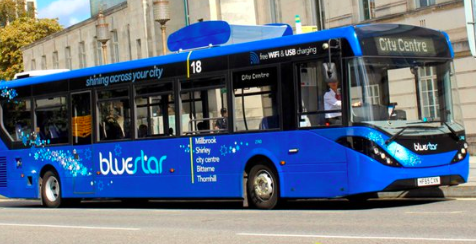
Canadian researchers have developed an accelerated way to produce magnesite at room temperature - a mineral which can capture the greenhouse gas carbon dioxide (CO2) from the atmosphere.

A bus designed to filter out harmful particles from the air as it drives has launched for the first time in the UK.

UK and US economists have created a model to assist policymakers in better understanding willingness issues related to climate change mitigation efforts.

A new type of battery developed by researchers at MIT could be made partly from carbon dioxide captured from power plants.

Whereas plastic generally takes years to degrade, the mushroom, first discovered growing in a Pakistani dump in 2017, could make it possible to break down the pollutants in weeks.

The government will launch fund to invest 350 million euros ($410 million) in cycling infrastructure the next seven years.

As major cities around the world make pledges to abandon fossil fuels, C40 Cities, have launched the C40 Divest/Invest Forum, a first-of-its-kind initiative to help urban leaders to accelerate green investment.

Coventry—the 9th largest city in the UK—is going all-in on electric taxi deployment, offering a range of incentives that includes £2,500 incentive packages to the first 60 drivers placing orders for plug-in cabs.

Lyft has promised to achieve complete carbon neutrality, not just its rides, and will strive to use 100 percent renewable energy.

Chargepoint has pledged a truly massive expansion of its global network of electric vehicle charging stations—an impressive 2.5 million charging spots by 2025 as part of its pledge to the Global Climate Action Summit.

The 30 meters of plastic bike path contain recycled plastic equivalent to more than 218,000 plastic cups or 500,000 plastic bottle caps. The PlasticRoad is also the first smart bike path in the world.
Seabins are being installed at harbors and marinas across the planet with the simple task of cleaning up garbage and possibly oil floating in the water.

Commuters in Germany now have a chance to ride the world's first hydrogen train as the country moves to replace old diesel-powered engines. Instead of exhaust fumes, hydrogen trains produce only water.

London Fashion Week (LFW) will be the first event of its kind to go fur free. The move is a response to the criticism LFW has received over the past two years from activists.

A new climate-modeling study has found that wind and solar plants throughout the Sahara desert could significantly increase precipitation across the region and increase vegetation.